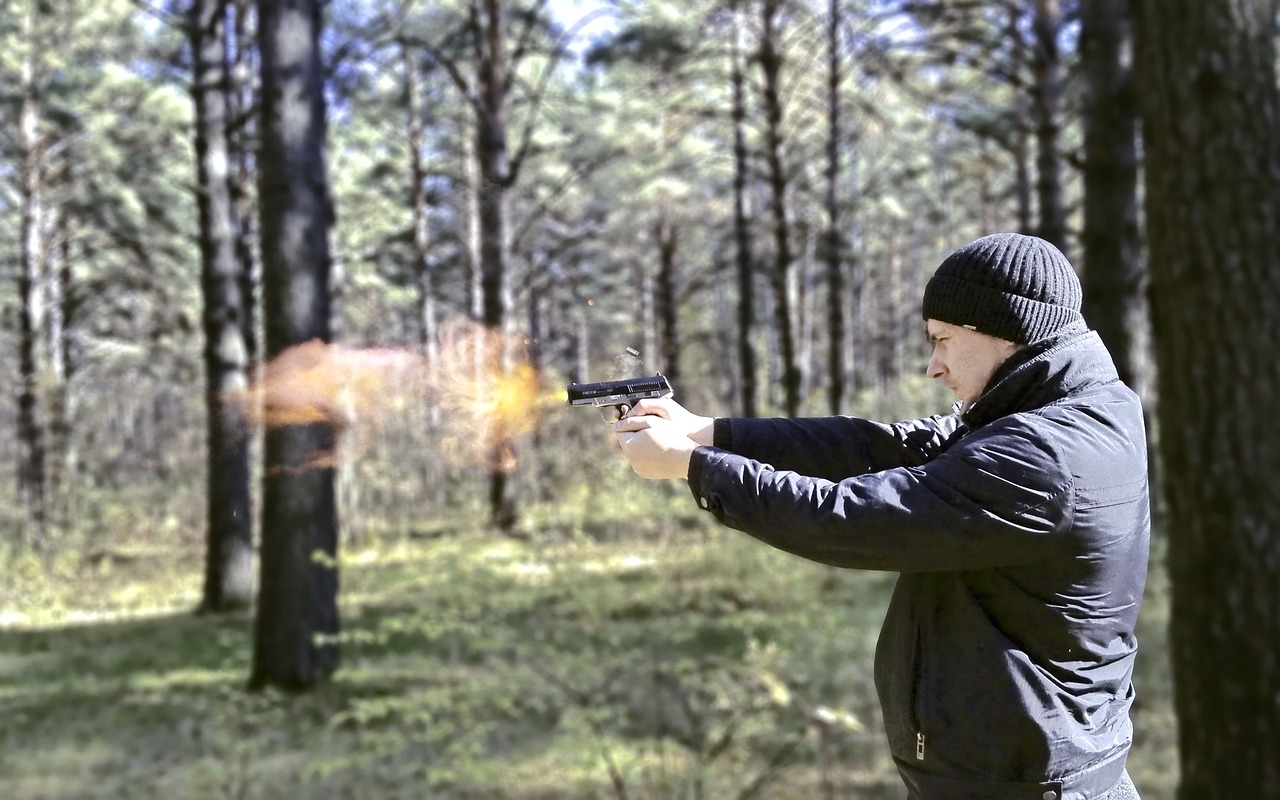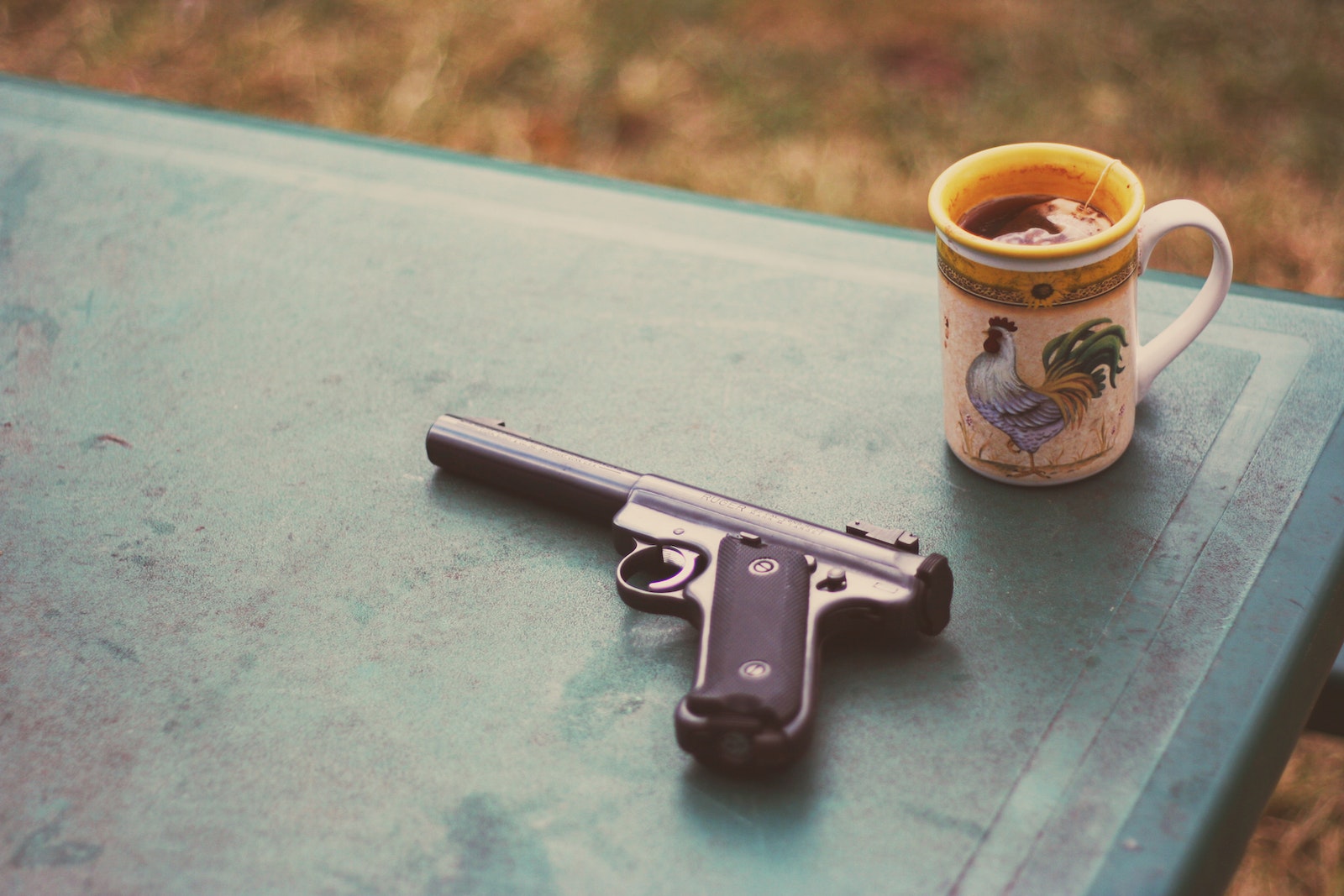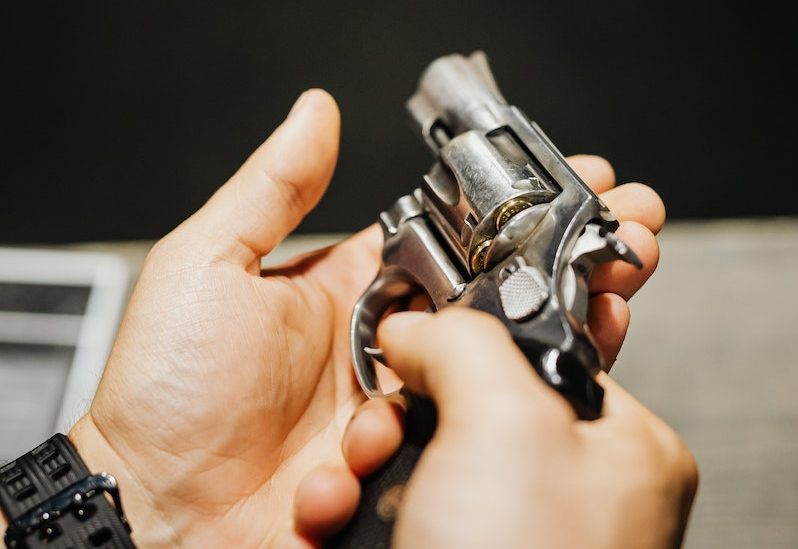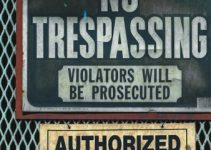Gun Rights Restoration in California
Contents
- Gun Rights Restoration in California
- Eligibility criteria for gun rights restoration
- Misdemeanor Convictions and Firearm Bans
- Domestic Violence Convictions
- Felony Convictions
- Different Gun Rights Restoration Options
- Process of restoring gun rights in California
- Factors Influencing Decision for gun rights restoration
- Resources and organizations that can help with gun rights restoration
- FAQs about California Gun Rights
- Can you have your gun rights restored in California?
- Does 17b restore gun rights in California?
- Does felony expungement restore gun rights California?
- What is the new gun control law in California?
- Can a felon own a gun after 10 years in California?
- What is a 17b motion in California?
- What are the new gun laws for 2023 in California?
- What is the new law in California for inmates 2023?
- What are the new laws for 2023 in California?
- Can the spouse of a felon own a gun in California?
- Does Prop 64 restore gun rights?
- Who is eligible for 17b?
- Conclusion and final thoughts
The right to bear arms is a fundamental aspect of American culture and is enshrined in the Second Amendment of the United States Constitution. However, individuals who have been convicted of certain crimes may find themselves stripped of this right.
In California, the laws surrounding gun rights restoration can be complex and vary depending on the nature of the conviction. For those who have experienced a conviction and subsequent loss of their gun rights, the question of whether it is possible to regain those rights becomes a matter of great importance.

When you have been convicted of a crime you lose a lot of rights you were previously able to enjoy. Certain convictions result in a ban on the convicted individual’s right to own or possess a gun.
Under California law, all felony convictions, as well as various misdemeanor convictions, will result in a ban on the individual owning or possessing any gun. This even includes hunting rifles. Those who have been convicted of a felony will lose this right for life. Those who were convicted of a misdemeanor, on the other hand, will usually be prohibited from gun ownership or possession for a period of ten years.
This blog post aims to provide a comprehensive understanding of gun rights restoration in California. We will explore the legal framework, eligibility criteria, and the process involved in regaining gun rights after a conviction.
Eligibility criteria for gun rights restoration
Understanding the eligibility criteria for gun rights restoration is crucial for individuals seeking to regain their rights after a conviction in California. While the process may vary depending on the specific circumstances and the nature of the offense, there are general guidelines that apply to most cases.
Certain convictions may permanently prohibit individuals from ever regaining their gun rights. These include serious offenses such as murder, sexual assault, and certain domestic violence convictions. In such cases, restoration of gun rights is typically not possible.
For individuals convicted of less serious offenses, the eligibility criteria for gun rights restoration may include factors such as the type of offense, the length of time since the conviction, and the individual’s overall conduct since the conviction.
In California, individuals with a felony conviction are generally prohibited from possessing firearms. However, under certain circumstances, they may be eligible to petition the court for a Certificate of Rehabilitation or a Governor’s Pardon, which can potentially restore their gun rights. The eligibility requirements for these options may include completing the sentence, demonstrating a period of rehabilitation, and living an exemplary life for a specific period.
For those with misdemeanor convictions, the process of regaining gun rights may be less complicated. In some cases, individuals may automatically regain their gun rights once their sentence is completed and certain time restrictions have passed.
Misdemeanor Convictions and Firearm Bans
While not every misdemeanor conviction includes a ban on firearms, many do. Domestic violence and restraining order violation convictions will result in the loss of these rights. Additionally, there are certain crimes that, depending upon the specifics, can be charged as a misdemeanor or a felony. These crimes when convicted as a misdemeanor that also includes a gun ban are assault, battery, stalking, threatening a public official or officer, most criminal threats, and all misdemeanors involving a gun – even without shooting it.

California will automatically restore gun rights to those convicted of most misdemeanors. However, there are exceptions to this. One such exception includes domestic assault, for which the convicted party will be banned from gun ownership and possession for life.
Domestic Violence Convictions
While many are misdemeanors, all domestic violence offenses carry a mandatory 10-year ban on firearm ownership and possession. But since federal law takes precedence over all state laws in terms of federal constitutional rights, a domestic violence conviction requires a lifetime ban –regardless of the state. In other words, even after 10 years, someone convicted of domestic violence will still not regain his or her gun rights. This means that anyone – in any state – who is convicted of a domestic violence crime will be banned from owning or possessing a gun for life.
Felony Convictions
Sometimes people are convicted of committing a crime that could be a felony or a misdemeanor but end up with a felony. Those who are charged with a felony (when there was a possibility that the crime could have been a misdemeanor) and were not sentenced to any prison time (instead maybe probation and county jail) may be able to petition the court to reduce the felony to a misdemeanor. These petitions are generally submitted to the court after the individual has already served his or her sentence. Additionally, most petitions are also submitted with a petition to expunge the conviction. If the court grants the petition and the felony charge is reduced to a misdemeanor, the individual will usually regain his or her gun rights ten years after the conviction. Again, this is not true for those convicted of domestic violence.
For those who were convicted of straight felonies that can’t be reduced to misdemeanors or those found guilty of domestic violence, it is usually extremely difficult to try to restore any gun rights, as it would likely require a pardon from either the governor or the president or a certificate or rehabilitation – all highly unlikely.
Different Gun Rights Restoration Options
When it comes to gun rights restoration in California, there are several options available for individuals who have previously been convicted of a crime. It’s important to understand that the process can be complex and may require legal assistance to navigate effectively.
Certificate of Rehabilitation
This is a court-issued document that recognizes an individual’s rehabilitation efforts following a conviction. It serves as an official declaration that the person has been rehabilitated and is no longer a threat to society. While a Certificate of Rehabilitation does not automatically restore gun rights, it can serve as a strong supporting document when petitioning for a Governor’s Pardon.
Governor’s Pardon
A Governor’s Pardon is an official forgiveness granted by the Governor of California, which restores certain rights, including the right to possess firearms. However, it’s important to note that Governor’s Pardons are typically granted in exceptional cases and require a thorough review of the individual’s criminal history, as well as evidence of rehabilitation.
Reduction or dismissal of Previous Conviction
This can involve filing a petition for expungement or filing a motion to have the conviction reduced to a lesser offense. While these options may not directly address gun rights restoration, they can have a positive impact on an individual’s overall legal standing and potentially improve their chances of regaining their rights in the future.
Process of restoring gun rights in California
Restoring gun rights in California can be a complex and lengthy process, but it is possible for individuals with a prior conviction to regain their rights. It is important to understand the steps involved and the requirements that must be met in order to successfully restore these rights.
The first step in the process is determining eligibility. California has strict criteria for restoring gun rights, and not all individuals with prior convictions will be eligible. Generally, individuals convicted of certain serious offenses such as violent crimes, domestic violence, or drug trafficking may face more challenges in regaining their gun rights.

Once eligibility is established, the next step is to file a petition for gun rights restoration with the appropriate court. This involves gathering necessary documents, such as proof of completion of probation or parole, evidence of rehabilitation, and character references. The petition must be carefully prepared and include compelling arguments as to why the individual deserves to have their gun rights restored.
After the petition is filed, a hearing will be scheduled where the individual will have an opportunity to present their case before a judge. It is crucial to be well-prepared for this hearing, as it can greatly impact the outcome of the petition. This may include obtaining supporting documentation, such as certificates of completion from rehabilitation programs, letters of recommendation, or evidence of community involvement.
During the hearing, the judge will consider various factors, including the nature of the offense, the individual’s criminal history, their behavior since the conviction, and any steps taken towards rehabilitation. It is important to convey a genuine sense of remorse, responsibility, and positive changes made since the conviction.
If the petition is granted and gun rights are restored, it is essential to understand the conditions and restrictions that may be imposed. For example, individuals may be required to comply with certain reporting requirements, undergo periodic background checks, or adhere to specific limitations on firearm possession.
Factors Influencing Decision for gun rights restoration
When it comes to the restoration of gun rights after a conviction in California, there are several factors that may influence the decision. The court will carefully consider these factors before granting or denying the restoration of your gun rights.
Nature of the Conviction
The severity and nature of the offense for which you were convicted play a crucial role. Certain crimes, such as violent felonies or crimes involving domestic violence, may make it more challenging to regain your gun rights.
Time Since Conviction
The length of time since your conviction is an important consideration. Generally, the longer you have maintained a clean record and demonstrated rehabilitation, the stronger your case for gun rights restoration becomes.
Criminal History
Your overall criminal history will be examined. Multiple convictions, especially for violent or firearm-related offenses, may raise concerns about your suitability to possess firearms in the future.
Compliance with Probation and Sentencing
Adhering to the terms of your probation or completing your sentence successfully showcases your commitment to obeying the law and can positively impact the decision.
Personal Character and Behavior
The court may consider your personal character, including evidence of remorse, involvement in community activities, employment history, and testimonials from family, friends, or professionals who can vouch for your rehabilitation.
Mental Health Evaluation
A thorough evaluation of your mental health may be required to assess any potential risks associated with the restoration of your gun rights. This evaluation may involve assessing your history of mental illness, substance abuse, or any treatment received.
Firearm Safety Training
Completion of firearm safety training courses can demonstrate your commitment to responsible gun ownership and may influence the decision in your favor.
Resources and organizations that can help with gun rights restoration
If you are seeking to restore your gun rights in California after a conviction, there are resources and organizations available to assist you throughout the process. Understanding the complexities and legal requirements can be overwhelming, but these resources can provide guidance and support.
One such organization is the California Rifle & Pistol Association (CRPA), which is dedicated to protecting and advancing the rights of firearm owners in California. They offer resources and information on gun rights restoration, including legal assistance and guidance on the necessary steps to regain your rights.
Another valuable resource is the Law Center to Prevent Gun Violence, which provides information on California’s gun laws and offers support for individuals looking to restore their gun rights. They have a team of legal experts who can provide guidance on navigating the restoration process and can refer you to qualified attorneys if needed.
The California Department of Justice website offers information on the process of gun rights restoration, including forms and instructions. It is important to familiarize yourself with the requirements and procedures outlined by the state to ensure you follow the necessary steps.
FAQs about California Gun Rights
Can you have your gun rights restored in California?
Yes, depending on the circumstances. In California, certain individuals may have their gun rights restored through a court-filed 17b motion or felony expungement. Alternatively, people can also petition the court to have their gun rights restored if they’ve been released from prison for 10 years and have remained law-abiding during that time.
Does 17b restore gun rights in California?
Yes. A 17b motion is an alternative way of restoring gun rights in California. The motion must be filed with the court where the individual was convicted, and it allows the individual to ask the court to restore their right to possess firearms and ammunition.
Does felony expungement restore gun rights California?
Yes, although it depends on the type of conviction being expunged. If the decision is made to expunge a felony conviction, the individual will typically regain their right to possess firearms and ammunition, as well as their right to vote. However, other restrictions may still apply.
What is the new gun control law in California?
In 2019, California passed a number of new laws related to gun control. These include bans on high-capacity magazines, requiring background checks for ammunition purchases, empowering employers and co-workers to request restraining orders against people they deem a threat, and more.
Can a felon own a gun after 10 years in California?
No, felons are not permitted to own guns in California regardless of how much time has passed since the conviction. However, felons may petition the court for restoration of their gun rights given certain conditions are met, such as having remained law-abiding for 10 years.
What is a 17b motion in California?
A 17b motion is a court-filed document that enables individuals who have had their civil rights revoked due to a criminal conviction to petition the court to restore those rights, including the right to possess firearms and ammunition.
What are the new gun laws for 2023 in California?
At this time, there are no specific laws regarding gun control set to take effect in 2023. However, California lawmakers are considering various measures that could go into effect later this year or early next year, so it’s important to stay up-to-date on any new developments.
What is the new law in California for inmates 2023?
There is currently no new law in California specifically aimed at inmates in 2023. However, several bills have been proposed that could potentially affect inmates’ rights and privileges in the future. As these bills progress, we recommend monitoring any updates to ensure you are aware of any changes that may affect you.
What are the new laws for 2023 in California?
Several bills related to a variety of issues are currently being considered by the state legislature and could take effect in 2023. Some notable topics include immigration reform, climate change initiatives, and criminal justice reform initiatives.
Can the spouse of a felon own a gun in California?
Generally speaking, spouses of felons are generally not allowed to own firearms in California unless they file an ATF Form 4473 stating that they are not legally prohibited from owning or possessing guns. Additionally, they must pass all required background checks before purchasing any firearms.
Does Prop 64 restore gun rights?
Proposition 64 does not specifically address gun rights, so it does not technically restore gun rights in California. However, it does reduce some marijuana-related penalties which could help individuals with marijuana convictions qualify for restoration of firearm rights when submitting a 17b Motion or Felony Expungement Petition.
Who is eligible for 17b?
Individuals who have lost their civil rights due to criminal convictions may be eligible for a 17b Motion to restore their firearm rights. Eligibility requirements vary by county but typically involve demonstrating good moral character and a commitment to rehabilitation.
Conclusion and final thoughts
Ultimately, the process of regaining gun rights in California may be challenging, but it is not impossible. With the right knowledge, legal guidance, and commitment to personal growth and rehabilitation, individuals can potentially restore their rights and regain the privilege of firearm ownership.
We hope this blog post on understanding gun rights restoration in California has provided you with valuable information. Regaining your gun rights after a conviction can be complex and challenging, but it is not impossible. By understanding the process and requirements, you can take the necessary steps to potentially restore your rights. However, it is crucial to consult with a knowledgeable attorney who specializes in this area of law to guide you through the process. Remember, every case is unique, and the information provided in this article is intended for general guidance. Good luck in your journey towards potentially regaining your gun rights and ensuring a brighter future.




